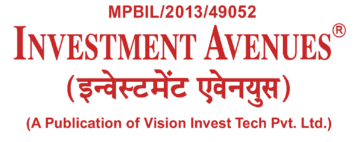Corporate tax rate cuts, changes in income tax rules. An opportunity for Indian Industries.
The Sensex soared over 2,200 points after the government broke the news regarding Corporate tax rate cuts. The government has promulgated an ordinance to make amendments in the Income-tax Act and make them effective from retrospective from April
Prime Minister Narendra Modi in a tweet said: “The step to cut corporate tax is historic. It will give a great stimulus to #MakeInIndia, attract private investment from across the globe, improve competitiveness of our private sector, create more jobs and result in a win-win for 130 crore Indians”.
What has the government done?
The government has slashed the corporate income tax rate from 30 percent to 22 percent for all companies. Inclusive of cess and surcharges the effective corporate tax rate in India now comes down to corporate tax to 25.17 per cent.Newer companies, which are set up after October 1, 2019, will be subjected to an even lower effective tax rate of 17 percent. Also, such companies shall not be required to pay Minimum Alternate Tax or MAT.
To boost manufacturing and the ‘Make-in-India’ initiative, the government has slashed corporate tax rate to 15%, from 25%, for domestic companies incorporated on or after 1st October 2019 making fresh investment in manufacturing.
The companies can pay income tax at the rate of 15%, this is available to companies which do not avail any exemption/incentive and commence their production on or before 31st March, 2023.The effective tax rate for these companies shall be 17.01% inclusive of surcharge & cess. Also, such companies shall not be required to pay Minimum Alternate Tax.
For companies who continue to avail exemptions/incentives, the rate of minimum alternate tax (MAT) has been reduced from 18.5 percent to 15 percent.
To increase the flow of funds into capital markets, the government rolled back increased surcharge introduced in this year’s Budget on capital gains arising on sale of equity share in a company or a unit of an equity oriented fund or a unit of a business trust liable for securities transaction tax, in the hands of an individual, HUF, AOP (Association of Persons), BOI (Body of Individuals) and AJP (Artificial Juridical Person).
The enhanced surcharge will also not apply to capital gains arising on sale of any security including derivatives, in the hands of Foreign Portfolio Investors (FPIs).
To provide relief to listed companies that had announced share buyback before 5th July 2019, the government exempted such companies from buyback tax announced in the Budget.
The companies, which do not avail of the concessional tax regime, will continue to pay tax under the pre-amended regime. They, the minister said, can opt for the concessional tax regime after the end of the tax holidays they currently avail.
In order to provide relief to listed companies, which have already made a public announcement of a buyback before 5 July 2019, buyback of shares shall not be taxed.
]]>
